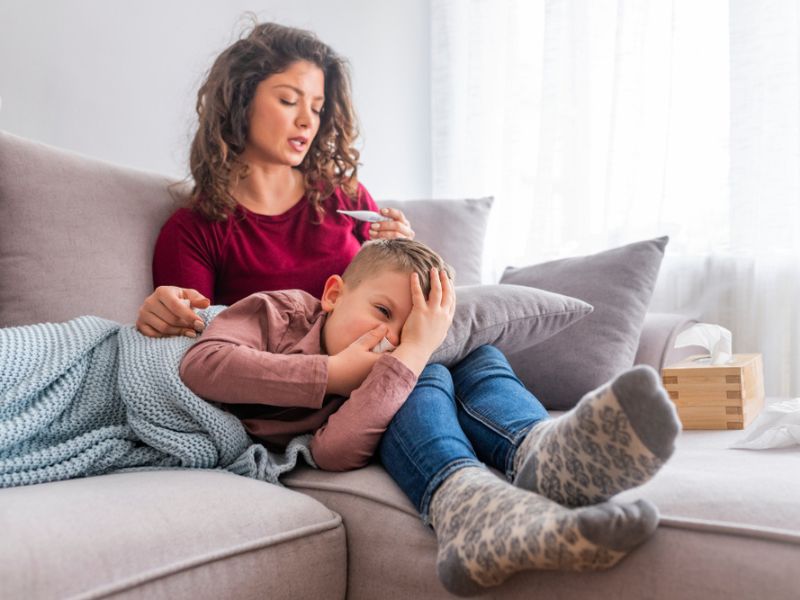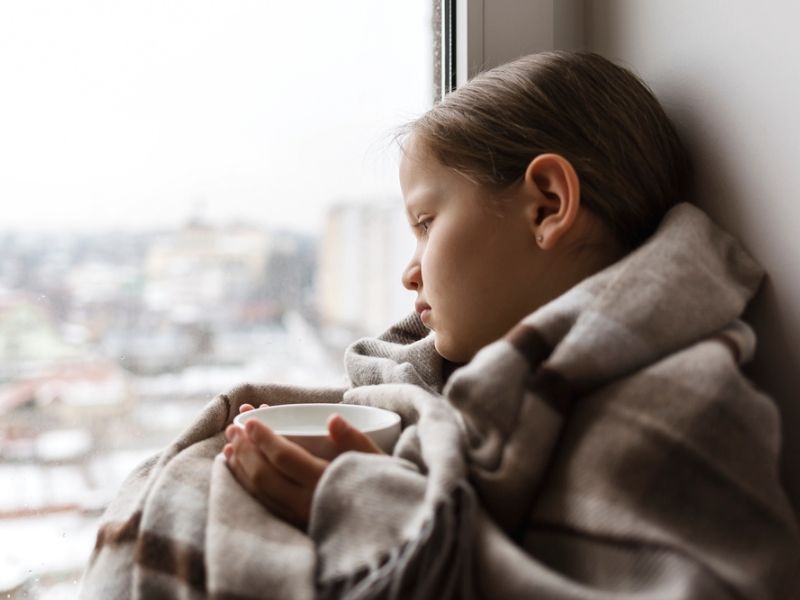Many people dislike the cold temperatures and icy conditions winter can bring, but some suffer from the seasonal affective disorder (SAD). Around 5% of adults have the seasonal affective disorder. An additional 20% may suffer from the “winter blues,” a milder disease variation. But what about kids? According to the Centers for Disease Control and Prevention (CDC), 4.4% of children, in general, suffer from depression. Experts say kids can get seasonal depression.

Image Credit: Shutterstock/Dragana Gordic
Thea Gallagher, clinical assistant professor of psychology at NYU Langone Health and co-host of the Mind in View podcast, says kids may experience seasonal depression symptoms. “There is less socializing and less time outside in the dark, and those factors can have the same effect on kids as they do on adults.”
But what are the signs of seasonal depression in kids, and how can you address this with your child? Here’s what parents need to know.
Seasonal Affective Disorder: What Is It?
The National Institute of Mental Health (NIMH) defines the seasonal affective disorder as depression with a seasonal pattern. SAD is most common in the winter months, though it can occur in the summer. Symptoms usually last about four to five months a year.
According to the NIMH, SAD symptoms include:
- Depressed most of the day, almost every day
- A loss of interest in activities that you used to enjoy
- Changes in appetite or weight
- Having trouble sleeping
- Not being able to concentrate
- Suicidal or death-related thoughts are frequent
- Sleeping too much
- Gaining weight

Image Credit: Shutterstock/Mariana Serdynska
Children Can Experience Different SAD Symptoms
Symptoms of SAD can affect kids, but Gallagher says they tend to look different. It includes:
- Irritability
- Anger
- Acting out
- Emotionally confused
Managing Seasonal Depression In Children
Although it’s often dark to help kids burn off energy in local parks or playgrounds, there are definite challenges in addressing seasonal depression in kids. Gallagher recommends asking your child about their feelings if you suspect they have SAD. She said, “It’s always good to talk about it.”